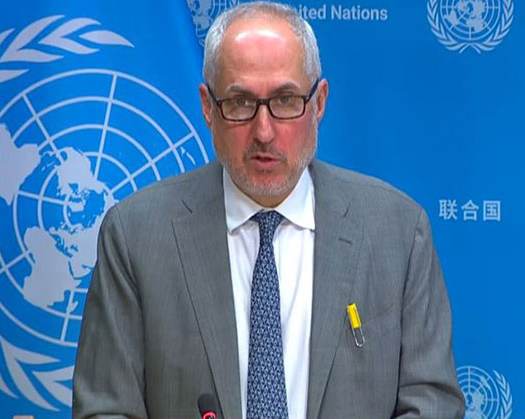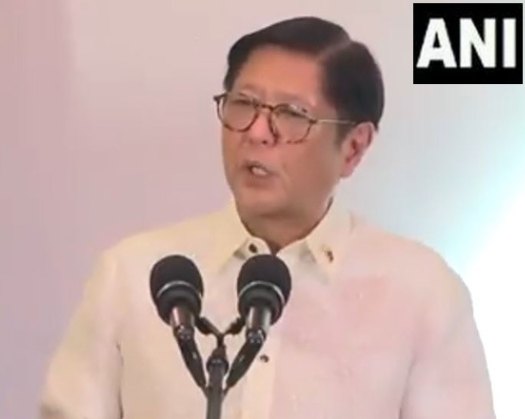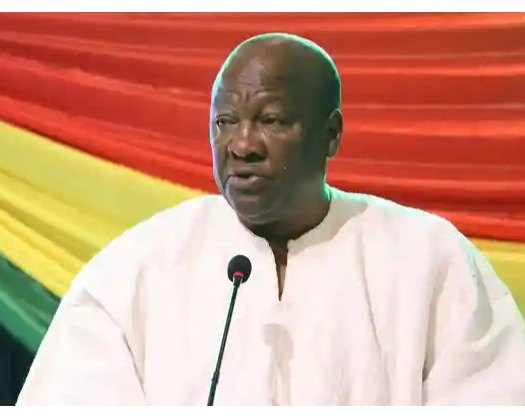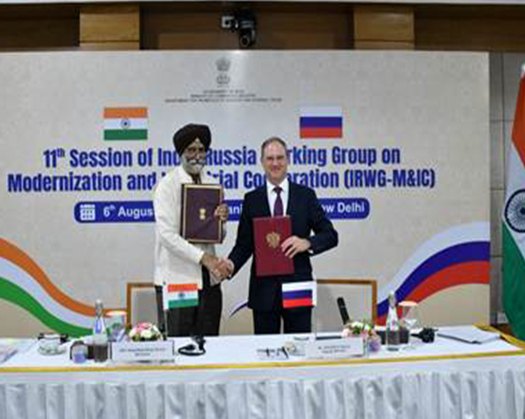New York: In light of the Pahalgam terrorist incident, Stephane Dujarric, a spokesperson for the United Nations, highlighted that UN Secretary General Antonio Guterres is attentively observing the developments with considerable worry.
He reaffirmed the UN’s unequivocal condemnation of the attack that occurred in Jammu and Kashmir and urged both India and Pakistan to practice utmost restraint to avert any further escalation. He underlined that any conflicts between the two nations ought to be settled amicably through substantial mutual discussion.
During a routine press conference on Thursday, Dujarric remarked, “Antonio Guterres is closely monitoring the situation and is very concerned. Our stance on the terror assault in Jammu and Kashmir, which resulted in numerous civilian casualties, has been clear in our condemnation. We earnestly appeal to both the Pakistan and Indian governments to show maximum restraint and to ensure the situation does not worsen any further. We believe that any disputes between Pakistan and India can and must be peacefully resolved through meaningful dialogue. ”
Importantly, Guterres had vigorously denounced the lethal assault in Pahalgam, stressing that harming civilians is impermissible under any circumstances.
Additionally, the Secretary-General expressed his profound condolences to the victims' families.
In a statement made by the UN spokesperson, Guterres categorically condemned the attack in Jammu and Kashmir. Responding to questions, Dujarric reinforced the Secretary-General’s condemnation of this violent act.
“Guterres extends his heartfelt sympathies to the grieving families,” Dujarric stated, emphasizing that “attacks on civilians are entirely unacceptable regardless of the circumstances. ”
Meanwhile, when questioned about the Secretary-General’s perspective on India’s decision to suspend water sharing with Pakistan, Dujarric responded, “I believe this falls under our call for maximum restraint and to avoid any actions that might escalate the situation. ”
Following the terrorist attack, the Central government implemented several diplomatic actions, including shutting down the Integrated Check Post (ICP) at Attari, halting the SAARC Visa Exemption Scheme (SVES) for Pakistani citizens, granting them 40 hours to leave India, and reducing personnel in the High Commissions of both nations.
Additionally, as a response to the Pahalgam attack, India paused the Indus Waters Treaty established in 1960. Terrorists targeted tourists at Baisaran meadow in Pahalgam on April 22, leading to the deaths of 25 Indian nationals and one Nepali individual, with numerous others sustaining injuries.
The Indus Waters Treaty, finalized in 1960 after nine years of negotiations between India and Pakistan, was facilitated by the World Bank, which is also a signatory to this treaty. The discussions were initiated by Eugene Black, a former president of the World Bank.
Considered one of the most effective international agreements, the treaty has withstood numerous periods of tension, including armed conflicts. It has offered a foundation for irrigation and hydropower development for over fifty years.
The agreement assigns Pakistan the Western Rivers, which include the Indus, Jhelum, and Chenab, while India receives the Eastern Rivers, comprising the Ravi, Beas, and Sutlej. Additionally, the agreement permits both nations specific uses of the rivers designated to the other country. India is allocated 20 percent of the water from the Indus River System, leaving 80 percent for Pakistan.










